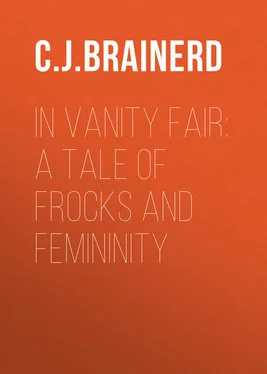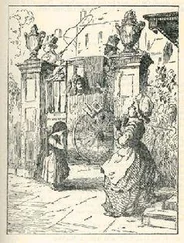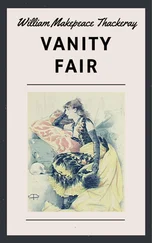Eleanor Brainerd - In Vanity Fair - A Tale of Frocks and Femininity
Здесь есть возможность читать онлайн «Eleanor Brainerd - In Vanity Fair - A Tale of Frocks and Femininity» — ознакомительный отрывок электронной книги совершенно бесплатно, а после прочтения отрывка купить полную версию. В некоторых случаях можно слушать аудио, скачать через торрент в формате fb2 и присутствует краткое содержание. Жанр: foreign_antique, foreign_prose, на английском языке. Описание произведения, (предисловие) а так же отзывы посетителей доступны на портале библиотеки ЛибКат.
- Название:In Vanity Fair: A Tale of Frocks and Femininity
- Автор:
- Жанр:
- Год:неизвестен
- ISBN:нет данных
- Рейтинг книги:5 / 5. Голосов: 1
-
Избранное:Добавить в избранное
- Отзывы:
-
Ваша оценка:
- 100
- 1
- 2
- 3
- 4
- 5
In Vanity Fair: A Tale of Frocks and Femininity: краткое содержание, описание и аннотация
Предлагаем к чтению аннотацию, описание, краткое содержание или предисловие (зависит от того, что написал сам автор книги «In Vanity Fair: A Tale of Frocks and Femininity»). Если вы не нашли необходимую информацию о книге — напишите в комментариях, мы постараемся отыскать её.
In Vanity Fair: A Tale of Frocks and Femininity — читать онлайн ознакомительный отрывок
Ниже представлен текст книги, разбитый по страницам. Система сохранения места последней прочитанной страницы, позволяет с удобством читать онлайн бесплатно книгу «In Vanity Fair: A Tale of Frocks and Femininity», без необходимости каждый раз заново искать на чём Вы остановились. Поставьте закладку, и сможете в любой момент перейти на страницу, на которой закончили чтение.
Интервал:
Закладка:
The dowager calls him a charming boy and says to him, "M'sieu Jean, when your famous grandpapa was alive, he made for me a light blue brocade that was most becoming. I would like something of that kind" – and M'sieu Jean repeats for age the light blue brocade of youth. He creates an extremely beautiful light blue brocade too, and he charges for it a price that would have surprised his famous grandpapa. He is old school by heredity, but he has modern commercial instincts, this charming boy.
The prices of the average French frock have gone up under the new régime, though extravagant sums were always paid for particularly original creations. There is practically no limit to the expense of dress to-day, and spectacular prices are paid for spectacular costumes; but the price of the great bulk of the gowns sold by the famous makers ranges from one hundred and twenty-five dollars to five hundred dollars, with the greatest sales between one hundred and seventy-five and three hundred. Certain firms refuse to make even the simplest frock for less than one hundred and fifty dollars, and turn out few costing less than five hundred. Small wonder that in Paris the great dressmaker is a personage, belonging to the swell clubs, in evidence everywhere save in society's exclusive circles, owning a superb country place up the Seine, a seashore home in Normandy, a villa on the Riviera, buying – as did one of the group this year – whole blocks of houses in the most expensive quarter of Paris, spending – as did another of the guild – twenty thousand dollars upon one day's entertainment of a few chosen friends, running handsome automobiles, driving and racing fine horses, and, from his vantage point, watching the flood of fashions which he has set flowing.
Yet the expenses of a big dressmaking firm are large, as well as the profits. Few of the autocrats are themselves practical dressmakers. They must hire work-folk capable of carrying out, in perfection, the ideas they wish to exploit, and expert cutters, fitters, sleeve hands, skirt hands, etc., command high wages. Exclusive material and trimmings are required in such an establishment; nothing is skimped, nothing is omitted that would add to the beauty of the frock and so sustain the reputation of the house. Success, not economy, is the watchword. A small army of employees is required in one of the great houses, and the place is a veritable beehive of systematized industry; but the patrons see only the "front," and of the wheels within wheels even of that smooth-running front, they have small idea.
Each dressmaker has his loyal and devoted clientèle, and it is upon this faithful band that he counts for his greatest profits, although the large floating trade, too, brings in immense returns. Some women famed for their taste and extravagance in dress refuse to confine themselves to any one artist, claiming that each dressmaker has his specialty and that it is wise to go for each frock to the maker most successful in the creation of frocks of exactly the type desired. The idea seems reasonable, but there is much to be said against it. For the woman with whom Parisian frocks are an incidental and fluctuating supply, the system may work well enough, but the woman who season after season buys lavish outfits from French dressmakers will do well to put herself in the hands of some one of the great men, establish a thorough understanding with him, allow him to study her personality, her needs, her possibilities. It is in such study that the artist dressmaker proves his title clear to the name "artist," and to achieve artistic triumphs in dress it is not enough that one wears a beautiful gown, one must wear a beautiful gown perfectly adapted to one's individuality, a gown in which one is at one's best. There are some women who know instinctively their own requirements, but these women are few, and even they can carry out their ideas only through the sympathetic understanding of a dressmaker who is master of his art. The average woman must trust to the dressmaker for the desired results, and to do this confidently and with a surety of obtaining his best efforts, his most serious consideration, his most masterly comprehension, she must be among his tried and valued customers, must have given him opportunity to know her well, to understand perfectly her needs.
All are fish who come to the dressmaker's net, and the woman who will pay the price may have the clothes; but the woman who can pay the price and display the clothes to the best advantage is the beloved of the Parisian artist in dress. "One does one's best, of course, even with the woman of no figure and of homely face," says Monsieur, with a shrug of resignation, "but when a customer is slender, graceful, beautiful, and knows the art of wearing a frock – then it is a joy to clothe her, then one puts one's heart into the work, then one is inspired to flights. Ah, mon Dieu, yes, there are women for whom one would make clothes without pay, were it not necessary to divorce sentiment and business."
Many American women are upon this list of ideal customers. In fact les Americaines divide the honours with the famous demi-mondaines of Paris. Do not shudder, Madame of the impeccable reputation. The comparison extends only to the province of clothes, and as we have said before, the great demi-mondaine of Paris is the best dressed woman in the world. One of the tyrants of the Place Vendôme put the matter clearly in a recent interview:
"Our best customers – best because they spend most freely and because they show our creations to the best advantage, are the famous demi-mondaines of Paris. You must not confuse the demi-mondaine with the grande cocotte. La grande cocotte is another thing. She dresses gorgeously, she spends money like water, when she has it, but she is seldom well dressed. She is merely spectacular. The perfection of extravagant simplicity, the apotheosis of artistic taste, – that is for the great demi-mondaine. She makes no mistake. Her costumes do not jump at the eyes. They are perfection. C'est tout. There are French society leaders who dress as well, but they are few, and for that matter, the demi-mondaines belonging to the class of which I have been speaking are also few. One can count them on the fingers of the hands, those demi-mondaines who really influence the fashions."
"And the Americans?" queried the interviewer.
"Oh, they are charming, les Americaines. We depend upon them. They cut more figure with us than any other dames et demoiselles convenables – respectable matrons and maids – on our books. Some are bizarre. Yes, of course. There are parvenues in America as elsewhere, more there, perhaps, because there are more quickly made fortunes in America. But many of the Americans have a genius for dress, and the money to indulge their tastes. They appreciate good clothes and wear them well. Me, I adore les Americaines."
His ardour was heartfelt, as it might well be, for millions of dollars had been poured into his coffers by American customers. One of these women, whose fortune is American, though its possessor elects to live in Europe, orders, on an average, from one hundred to one hundred and fifty gowns a year, the prices running from one hundred and twenty-five dollars to two thousand dollars. Even the great man lowered his voice when he mentioned these figures. "Voilà une cliente précieuse. Voilà, certes, une cliente précieuse," he murmured reverently.
From all over Europe, and from farther afield, women flock to the dressmakers of Paris. The Hungarian and Polish and Viennese women of fashion have a reputation for dress, and some of the Russians spend fabulous sums upon the Rue de la Paix. Many English women of fashion buy almost all of their frocks in Paris, and within the last few years the German trade has assumed unprecedented importance in the dressmaking establishments of Paris, but neither the English nor the Germans as a class have a talent for dress, and the English or German woman who attains the effect to which the French apply the comprehensive term "chic" is the exception rather than the rule.
Читать дальшеИнтервал:
Закладка:
Похожие книги на «In Vanity Fair: A Tale of Frocks and Femininity»
Представляем Вашему вниманию похожие книги на «In Vanity Fair: A Tale of Frocks and Femininity» списком для выбора. Мы отобрали схожую по названию и смыслу литературу в надежде предоставить читателям больше вариантов отыскать новые, интересные, ещё непрочитанные произведения.
Обсуждение, отзывы о книге «In Vanity Fair: A Tale of Frocks and Femininity» и просто собственные мнения читателей. Оставьте ваши комментарии, напишите, что Вы думаете о произведении, его смысле или главных героях. Укажите что конкретно понравилось, а что нет, и почему Вы так считаете.












